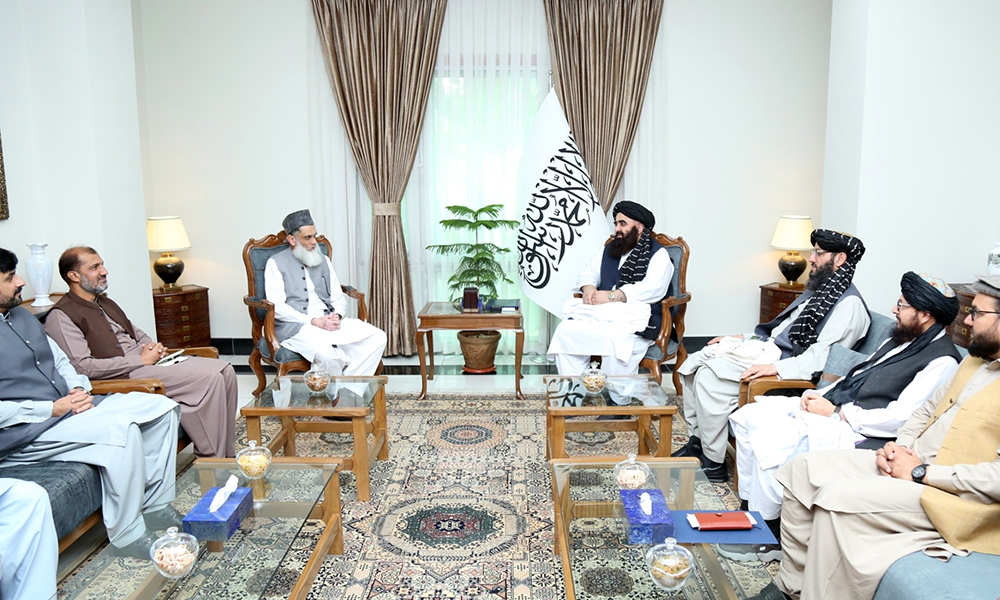Taliban Acting Foreign Minister Amir Khan Muttaqi has expressed regret over Pakistan’s ongoing deportation of Afghan refugees and condemned what he described as the “inappropriate” treatment of Afghan nationals.
Muttaqi raised the issue during a meeting with Pakistan’s Chargé d’Affaires in Kabul, Obaidur Rehman Nizamani, on Monday. According to a statement released by the Ministry of Foreign Affairs, the Pakistani envoy acknowledged the concerns of the Islamic Emirate and committed to conveying them to relevant authorities in Islamabad.
The meeting comes amid intensifying pressure on Afghan refugees residing in Pakistan. In a new report published Sunday, April 13, the International Federation of Red Cross and Red Crescent Societies (IFRC) warned of a rapidly worsening humanitarian crisis resulting from the mass deportation of Afghan nationals.
“The scale and scope of the ongoing returnee crisis is both staggering and rapidly escalating,” the IFRC noted.
The report, citing data from the International Organization for Migration (IOM), estimates that starting April 1, approximately 20,000 Afghans per day are expected to return from Pakistan via two major border crossings 13,000 through Torkham and 7,000 through Spin Boldak.
The IFRC has called for an “urgent, well-resourced, and long-term strategy” to address the needs of returnees and bolster already overstretched humanitarian operations within Afghanistan.
Currently, Pakistan hosts an estimated 2.8 million Afghans, around 1.4 million of whom are undocumented or lack legal registration. The ongoing deportation campaign, including the demolition of informal settlements, has triggered widespread fear and uncertainty among Afghan refugees.
“The repercussions of these actions have sparked a notable surge in returnees,” the IFRC stated, warning of the social and economic strain on Afghanistan’s fragile systems.
Compounding the crisis is the overwhelmed registration and reintegration infrastructure at the border. With tens of thousands of returnees arriving daily, transit centers are stretched beyond capacity, leading to delays and deteriorating conditions for families awaiting assistance.
The return of Afghan refugees comes amid a backdrop of Afghanistan’s prolonged instability, compounded by conflict, natural disasters, economic collapse, and limited humanitarian access. Human rights organizations have urged Pakistan to halt forced deportations and prioritize a rights-based, coordinated response in line with international legal standards.




